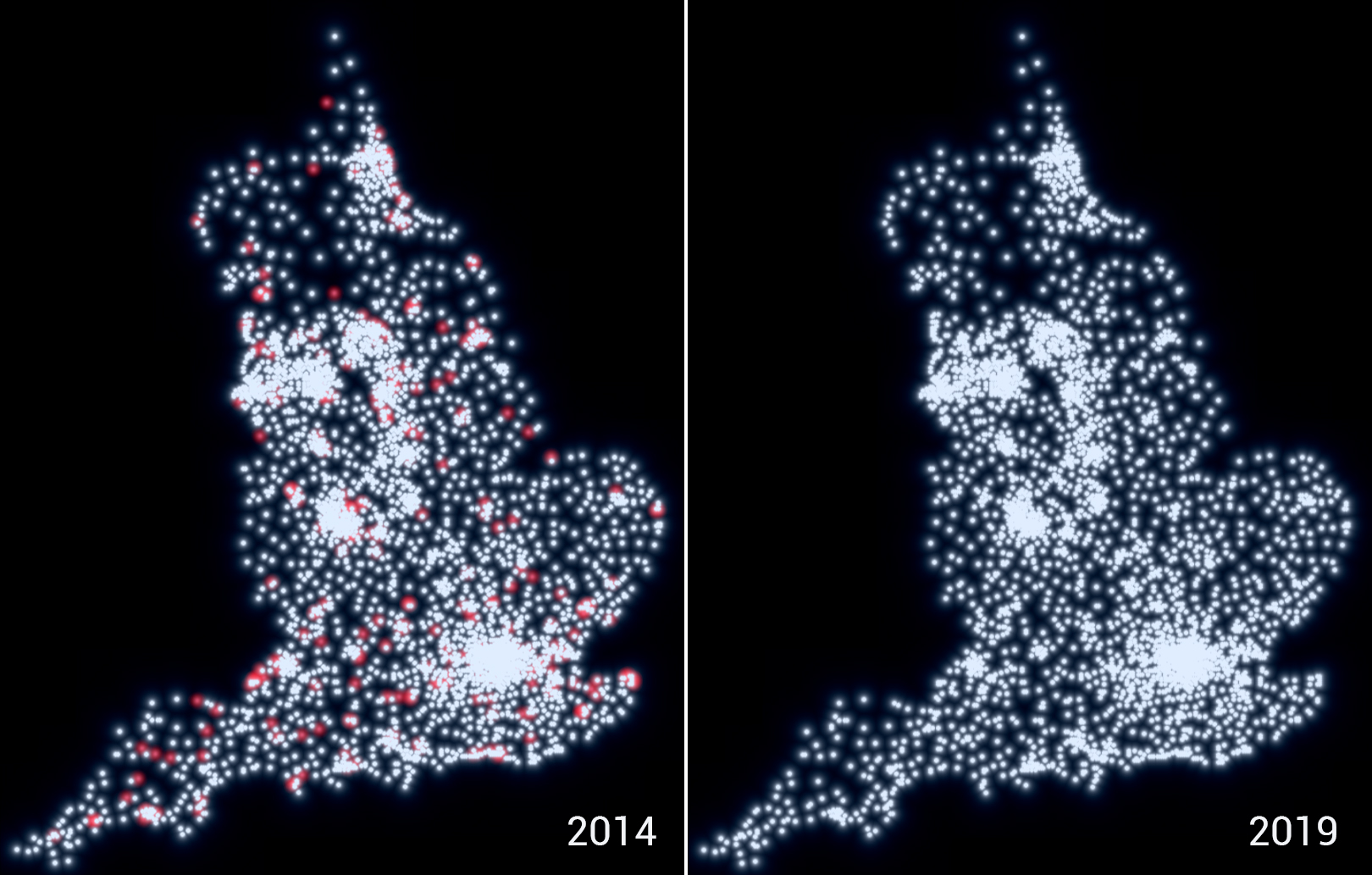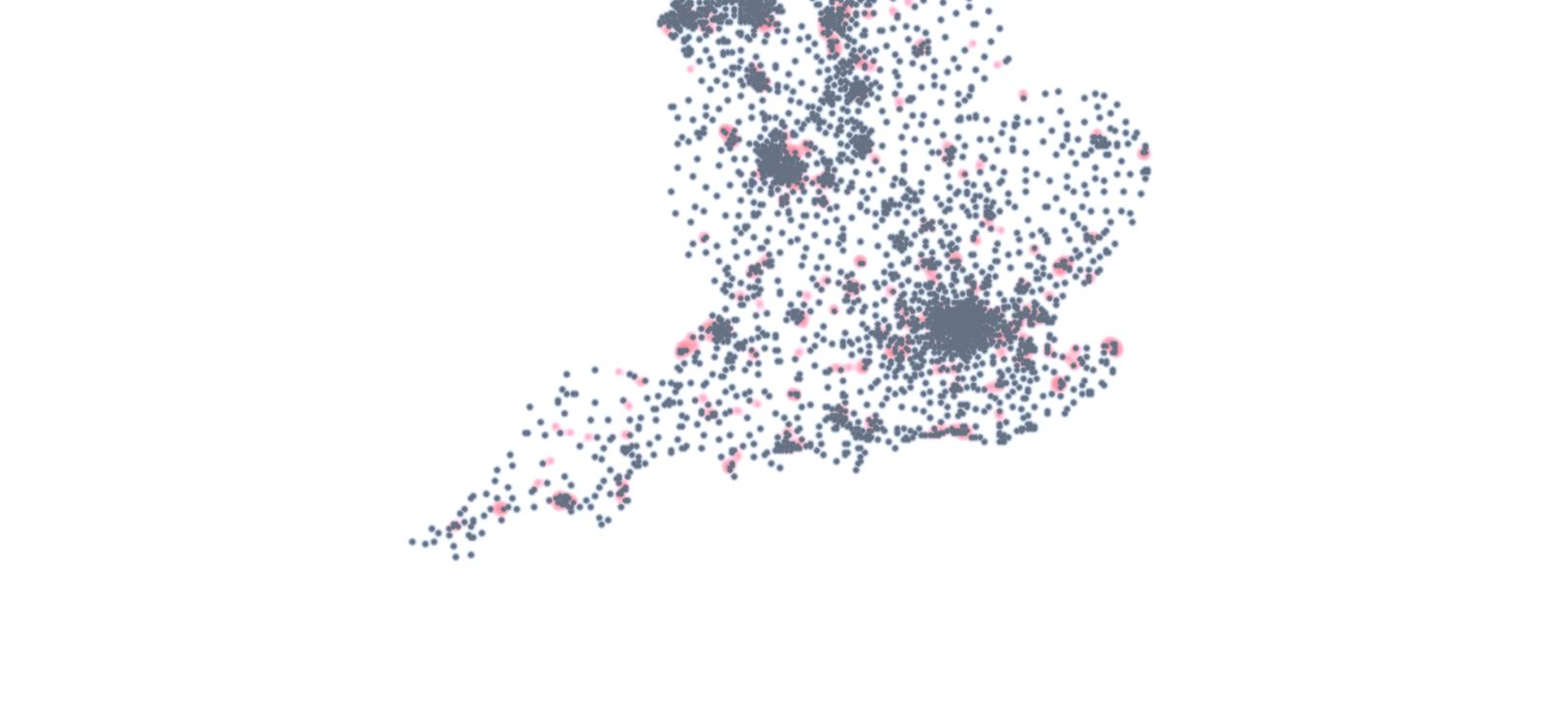Across the UK, a profound transformation is taking place. GP surgeries – one of the few gateways to healthcare – are shutting down at an increasing rate. Some are merging into larger practices, others simply ceasing to exist. In 2018 alone, 138 GP surgeries closed their doors. With patient numbers continually on the increase – there are now almost 60 million patients registered with a GP – and the result is that GP patient lists have ballooned.
For those who have tried to book a GP appointment recently, this news comes as no surprise. Many of us have become accustomed to the 8am phone rush to book same-day slots, freed up by other patients’ cancelled appointments. Those who cannot secure a same-day appointment face increasing wait times. According to figures released by the NHS, one in five patients now has to wait over two weeks to see their GP.
Although the closure of GP practices has been well-covered in the national news, there has so far been very little analysis of how declining access to primary care is playing out geographically. GP surgeries are disappearing in dense urban areas and driving up patient lists, but they are also disappearing from small villages and towns. As a result, the UK is increasingly home to “dark spots” of care where the nearest GP surgery is now many miles away.
Using Catalyst data provided by the NHS Business Services Authority, we have been able to visualise the changing face of GP access across Britain for the first time. The maps below compare England’s GP surgeries in January 2014 with April 2019:

Mapping GP surgeries in this way reveals a stark picture of the state of primary care in England. The red parts of the 2014 map indicate the GP practices which have since ceased to operate. Although many more surgeries have closed within the UK’s biggest cities, this map aims to highlight which areas have been left without a nearby GP surgery as a result of the recent closures.
In total, more than 1,000 GP surgeries have closed over the last five years. Back in January 2014, England had a little over 8,000 GPs across the country. As of April 2019, that number had fallen to 6,914.
It’s clear that areas such as Devon, Cornwall and Somerset have been the most severely affected, whereas parts of Cumbria and Northumbria have had significant dark spots in GP provision for a number of years. You can compare the two periods yourself by hovering over the map below:
2014
2019
The impact of GP closures in rural areas is an important factor to consider when looking at how access to healthcare is changing. For someone managing diabetic foot, high blood pressure, or an infection, easy and regular access to a GP is vital. In many rural areas, the closure of the local GP service has been compounded by the closure of essential local bus routes, with 7.8% of all rural bus routes cut since 2014. These routes often served as lifelines to the elderly, disabled, or those otherwise unable to drive – populations who arguably need access to healthcare the most.
The problem is that while there is a GP recruitment crisis across the country, the hardest areas to recruit for are rural areas. Due to the small and disparate nature of the local population, it is also harder for GPs to stay afloat by pooling resources and undergoing practice mergers – a common strategy in larger towns and cities.
So what does the future look like for healthcare provision in local areas?
Remote consultation to the rescue?
A lot of noise has been made lately over the NHS’s plan to give every patient in England the right to a remote consultation within the next five years. This would allow patients to speak to their GP using a service similar to Skype or Facetime.
If this goal is achieved, the way we access our GP could change dramatically. Already, patients living in certain areas of London are eligible to sign up to GP At Hand, a service that lets you video call a GP at any time of day. The GP At Hand homepage features a number of reviews from patients praising the speed with which they were able to speak to their GP. Babylon, the company behind GP At Hand, hopes to roll out the service across the UK in the next few years.
Other organisations promise to bypass GP surgeries entirely and connect patients directly with specialist consultants. Top Doctors, for example, is currently the only company in the UK enabling patients to consult with specialists through video conference or live messaging. For those patients living a significant distance from the UK’s top hospitals and clinics, this may be the fastest way to see a consultant.
Still, remote consultations have their limits. Currently, there’s no way to conduct a clinical examination over video chat or take a blood test. Moreover, we are yet to see comprehensive outcome data comparing remote consultations with face-to-face appointments. Until we know that remote consultations result in care that is as good as or even better than face-to-face appointments, widespread adoption is unlikely.
The UK’s health system stands to benefit hugely from the latest technological innovations. But it will take some time to get there. Meanwhile, the lights are going out in GP surgeries across the country – and many people risk being left in the dark.
How the data was gathered:
- We used Catalyst data on GP practices, filtering out practices which don’t have a patient list. These are generally other practices which prescribe medication but aren’t GP practices.
- The data covers only GP practices in England, not Scotland, Wales or Northern Ireland.
- These were plotted on a map. The whole of England is shaded according to the distance to the nearest GP practice.
Sources
Source: RF2. Practice List Size and GP Count, NHS Business Services Authority
https://www.gponline.com/map-parts-england-patients-per-gp/article/1591001
https://www.gponline.com/rising-patient-numbers-pile-pressure-falling-gp-workforce/article/1590770




This plan is so ridiculous, What about older people who don’t have a computer or family to use one for them. My doctor has disappeared and left ‘clinicians’ in his place. Your ring at 8 for an appointment. they’re closed so I rang back 2 mins later and looked at the clock to see this, only to be number 34 on the waiting list. How can that possibly be right? I waited over 45 mins to get an appointment only to be told I can have one next week as she doesn’t have any until then. It is really getting… Read more »